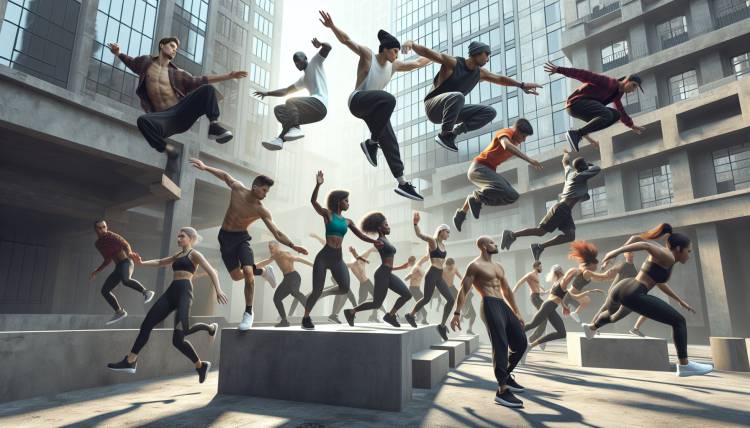
The Thrill of Parkour
Parkour, often associated with urban environments and daredevil stunts, is an exhilarating form of fitness that offers a unique blend of strength, agility, and mental focus. Unlike traditional workouts, parkour challenges both the body and the mind, making it an engaging and effective way to stay fit.
Building Strength and Endurance
One of the key benefits of parkour is its ability to build functional strength and endurance. The movements involved in parkour require the entire body to work in unison, resulting in a full-body workout that targets muscles often overlooked in conventional training routines. From leaping over obstacles to climbing walls, every parkour movement engages multiple muscle groups, leading to improved strength and stamina.
Enhancing Agility and Coordination
Practicing parkour challenges individuals to develop exceptional agility and coordination. The precise and fluid movements required in parkour demand a high level of body awareness and control. Over time, participants see a noticeable improvement in their balance, flexibility, and overall coordination, which can translate to better performance in other physical activities and in daily life.
Engaging the Mind
Beyond its physical benefits, parkour is a mental workout as well. Practitioners must constantly assess their surroundings, calculate distances, and make split-second decisions, fostering quick thinking and adaptability. The mental challenges of parkour not only keep the mind sharp but also provide a sense of accomplishment as participants overcome obstacles and conquer new challenges.
Getting Started with Parkour
Beginners interested in parkour should start with basic movements such as precision jumps, vaults, and rolls, gradually progressing to more advanced techniques as they become more confident and skilled. It's essential to practice parkour in a safe environment and under the guidance of experienced instructors to ensure proper technique and prevent injuries.
Overcoming Fear and Building Confidence
One of the most rewarding aspects of parkour is the psychological growth it fosters. Overcoming fears and mastering challenging movements can significantly boost self-confidence and resilience. As individuals push their boundaries and achieve new feats, they develop a newfound belief in their abilities, which can positively impact various aspects of their lives beyond fitness.
Community and Creativity
Parkour is also a communal activity that encourages creativity and collaboration. Practitioners often train in groups, sharing techniques and supporting each other's progress. The community aspect of parkour fosters a sense of belonging and camaraderie, creating a supportive environment for individuals to pursue their fitness goals.
Embracing the Parkour Lifestyle
Ultimately, parkour is not just a workout; it's a lifestyle that promotes resilience, adaptability, and physical mastery. As individuals engage with the urban environment in new and dynamic ways, they develop a deeper connection to their surroundings and a heightened appreciation for movement and freedom.
